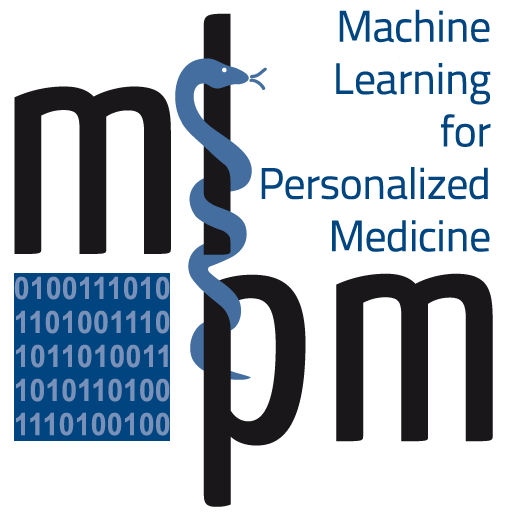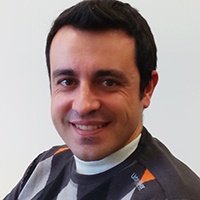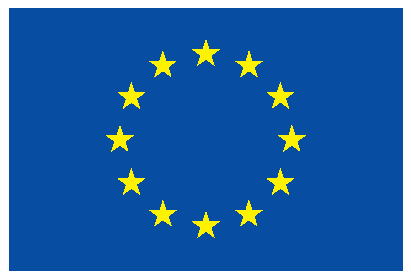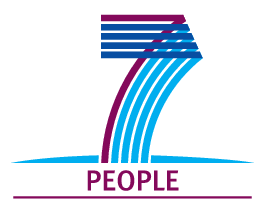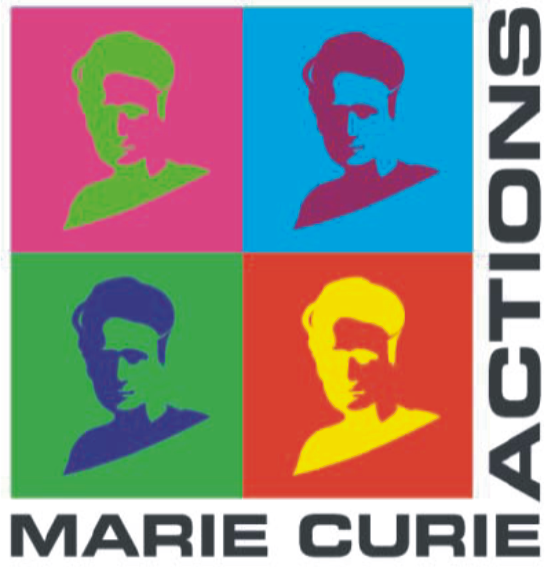Project: Development of Methods for Patient Group Stratification and Tailored Medical Interventions
|
|
 |
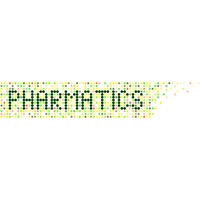 |
| Researcher: Daniel Urda Muñoz |
Supervisor: Felix Agakov |
Pharmatics Edinburgh, UK |
Daniel Urda Muñoz was born in Málaga, Spain in 1982. He studied Computer Sciences at the University of Málaga obtaining his degree in February 2008. After completing a Master degree in Software Engineering and Artificial Intelligence in June 2010, he began his PhD studies. Finally, he finished his doctorate in February 2015 at the University of Málaga, mainly focused on developing predictive models based on genetic profiles to identify robust genetic signatures with high prediction capabilities for applications of Personalized Medicine.
Project description
Accurate and timely prediction of disease-related traits and identification of the strongest predictors of disease risks are critical for patients, health service providers, and healthcare industries. Early risk prediction can enable prevention and early therapeutic interventions, thus reducing costs of care and improving prognosis, whereas identification of robust predictors of risk or response can lead to novel targets, reduce costs of clinical trials, and improve efficacy of drugs tailored to individual patients. Huge investments are being made to address these goals.
In this project, we aim to improve predictions of complex outcomes using combinations of -omics and clinical/environmental data available from free-public repositories and from proprietary studies conducted by our research partners. This project will focus on the following development objectives:
- Establishing familiarity with common and cutting-edge methods developed for high-dimensional predictions.
- Developing and applying predictive methods using -omics data in order to outperform traditional clinical models. The specific focus will be on trying to find structure in the data to allow for automatic stratification of patients (or subtyping of diseases) in order to improve predictions.
- Incorporating existing medical and/or biological knowledge into predictive models to improve quality of predictions.
- Developing an approach using information about multiple related traits to improve prediction of the target trait. To achieve this, we will develop an approach for automatic identification of traits related to the target disease using findings summarized in online databases.
- Extending the developed methods for dealing with imbalanced datasets and/or rare features. (Note that population-level studies tend to have a disproportionally low number of “cases”, which will need to be taken into account).
Motivation for participating in the network
After finishing my Computer Science degree, I started a Master degree in Software Engineering and Artificial Intelligence. In concrete, I found very interesting the application of machine learning approaches in clinical or biological environments due to the benefits that could be provided to the society. I then realized how important it is to work in a multidisciplinary environment where several different areas collaborate to achieve common goals. Therefore, I focused my PhD on the development of predictive models based on genetic profiles working together with clinicians from a hospital in Málaga and biologists from the University of Málaga.
The MLPM network is an excellent opportunity to gain much more experience as a postdoc in the same research line followed in the previous years. It also offers me the possibility of working with many of the most experienced people in the area of Personalized Medicine, what I am sure will improve the quality of the work that will be done. Further, it will allow me to learn and acquire as much knowledge as possible from all the ITN members in order to become an expert in this field.
****************************
Duration of fellowship: 01/2015 to 12/2016
Contact: daniel@pharmaticsltd.com
Recent Posts
- MLPM2012 has ended – thank you!
- Final ITN meeting and Krupp Symposium in Munich
- MLPM ITN fellow Melanie brings science to classrooms and inspires with simple but exciting experiments
- ESHG Symposium – a great success!
- Team working event: The 2nd ITN March retreat
Archive
2017
- January (1)
2016
2015
2014
2013
Categories
- Awards (2)
Authors
- Melanie (1)
- Felipe (1)
- MLPM-Admin (22)
- MLPM (2)
